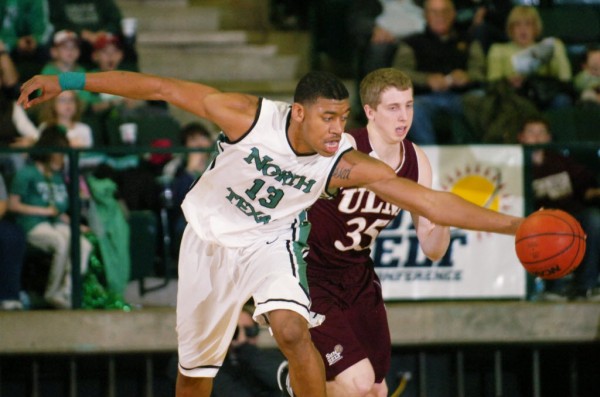As NBA Draft Deadline Passes, A Reminder of NBA/NCAA Rules Discrepancies
Posted by EJacoby on April 30th, 2012Evan Jacoby is a regular contributor for RTC. You can find him @evanjacoby on Twitter.
The NBA’s deadline for players to enter the 2012 NBA Draft passed over the weekend, with the biggest news coming from North Texas that star big man Tony Mitchell is returning to school. Why the minimal buzz about the deadline? It’s because the NCAA’s own deadline had already passed back on April 10, the date by which players had to withdraw from draft consideration if they had previously declared but wanted to retain college eligibility. It’s a confusing rule that’s just one of many areas of discrepancy between the NBA and NCAA as far as eligibility is concerned. For two associations that depend on each other so much, they often act more like competitors than allies. From the NBA age minimum to NCAA amateurism to the different draft deadlines, there are several areas of contention worth reflecting on.

Tony Mitchell is Staying at North Texas, a Decision He Had to Make Before Sunday's NBA Draft Deadline (AP Photo)
On Friday, NBA Commissioner David Stern appeared on Dan Patrick’s radio show where he mentioned that he’d like the league to adopt an even more restrictive age minimum on incoming players. For Stern, the ‘one-and-done’ format still doesn’t adequately solve the problem of making sure players are prepared enough to contribute immediately to his league. But as we’ve seen over the past 10-plus years, there are plenty of 19- and 20-year-olds that are able to contribute at the NBA level right away, and it wouldn’t be fair to stall their professional earning potential just because NBA general managers want a better read on any and all potential draftees. And that’s the problem; Stern is focused solely on the NBA and has no reason to worry about the college product or its student-athletes. The differing motives between the NBA and NCAA continue to be a potential long-term concern.
What about the idea of ‘amateurism,’ and whether or not college players should be paid for their contributions? The argument is that the NCAA is a billion dollar business that doesn’t have to pay its employees. Kentucky basketball rakes in millions per year thanks to the services of Anthony Davis, Michael Kidd-Gilchrist and the like, yet these players see few of the benefits. The NCAA, of course, will say that these same two players are about to become two of the highest picks of the upcoming NBA Draft where they’ll immediately sign million-dollar contracts, so where’s the sympathy? The problem is that for every Davis and Kidd-Gilchrist, there are dozens of players that make significant contributions to successful programs yet won’t make any money playing basketball professionally. It’s another contentious issue that probably won’t be going away anytime soon.
And that brings us to today, the day after the NBA’s 2012 Draft deadline has passed, and it reminds us how far away we are from uniformity in the NBA and NCAA’s motives for rules. Mitchell didn’t get to test the NBA waters before April 10, then dealt with the aftermath of a coaching change at UNT, and had to make a seemingly rushed decision on his future by this weekend. It’s just something to keep in mind when thinking about upcoming college players and teams each offseason – how are their developments affected by both NBA and NCAA rules? With two very separate associations with much different bottom lines, there’s a much bigger difference between college and professional basketball than meets the eye besides the length of the shot clock and distance of the three-point line.










































